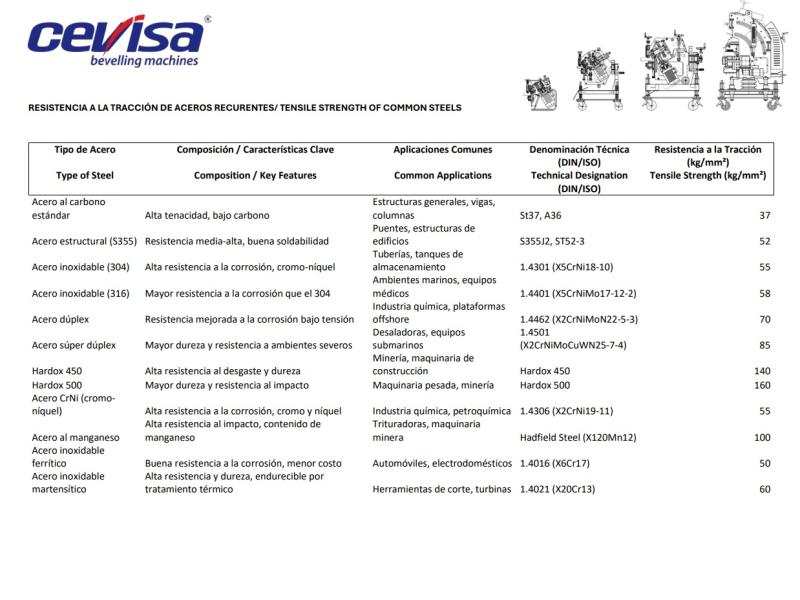
Tensile strength is a crucial factor in selecting the right bevelling machine, especially for applications where the materials involved have varied and demanding mechanical properties. This article explores how tensile strength values influence machinery selection and how CEVISA solutions are tailored to handle these challenges effectively.
The Importance of Tensile Strength
Tensile strength defines a material's ability to resist forces before breaking. This parameter is essential when selecting tools that can create bevels without deforming or compromising the material’s integrity. Common tensile strength values for steels include:
- Standard carbon steels: 370-700 MPa.
- Structural steels (S355): ~355 MPa.
- Austenitic stainless steels: 500-750 MPa.
- Hardened steels like Hardox 500: up to 1600 MPa.
Industries Benefiting from CEVISA Solutions
CEVISA’s bevelling solutions have proven their effectiveness in industries such as:
- Naval and offshore construction: Stainless steels resistant to corrosion (e.g., S355, Duplex).
- Mining and heavy machinery: Materials like Hardox 500.
- Energy and petrochemicals: Components with high structural demands.
Conclusion
Understanding a material's tensile strength is essential to ensure that the selected machine can not only perform the task but also maximize productivity and the equipment’s lifespan. CEVISA’s bevelling machines offer versatile and reliable solutions for a wide range of materials and applications.
If you need more information about our machines' specifications or assistance in choosing the ideal solution for your project, contact us today. At CEVISA, we provide the perfect solution for your bevelling needs.
